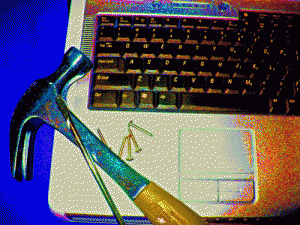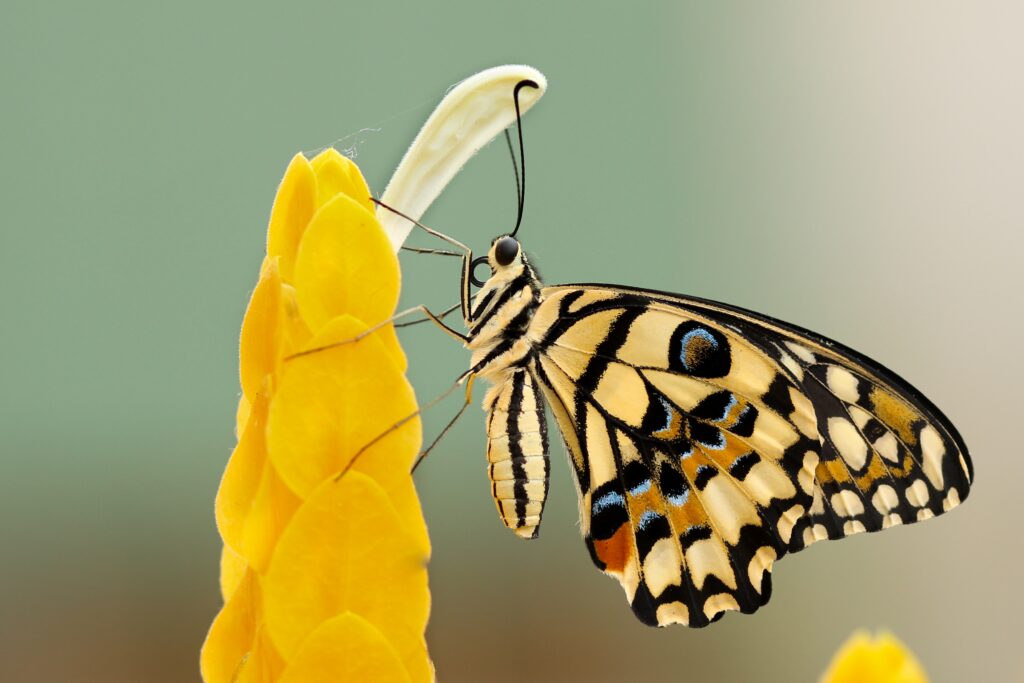Mandy Brett wrote a fabulous article recently about editing and the invisibility thereof (Stet by Me: Thoughts on Editing Fiction) It got me thinking as to how editors view the art and act of editing and, further, how others view editing as a profession. I don’t mean in terms of its value, so much as the very bones and passion of it.
Writers often bemoan the fact that their lives and careers are looked upon in such “romantic” terms – those outside the industry tend to assume all writers are either tortured, starving and misunderstood* or impossibly rich and lurking in Hollywood mansions, dashing off film scripts. Either way, authors are usually objects of intrigue because they are creative – “professional daydreamers”.
Editors do not have this problem. Career-wise, they are generally regarded as boring and most assuredly not creative. No one wants to hear what an editor spent the day doing (although some writers might argue that no one really wants to hear what they actually spent the day doing, either – it’s the fantasy that’s appealing**). However, it’s the difference, or perhaps the similarities, between the two vocations, to which I wish to draw attention.
 Non-writers always ask editors, “Don’t you want to write?” – the assumption being that surely one must be bored doing all those tedious corrections and desperate to do something less dull and more creative. Something with a purpose.
Non-writers always ask editors, “Don’t you want to write?” – the assumption being that surely one must be bored doing all those tedious corrections and desperate to do something less dull and more creative. Something with a purpose.
Writers, by contrast, tend to couch the question more tentatively and their phrasing will depend on their own experience and how their current manuscript is going: “Do you write at all?” they might ask, cautiously. Or more caustically, “Oh, God, you don’t write as well, do you?”****
The thing is, both editors and writers are drawn to their careers for the same reason – an absolute love and passion for words and stories; and for fiction writers/editors, the thrill of imaginary worlds. While the skills of each are quite different – writers are, of course, the creators; editors merely step in when the words (worlds?) are already on the page – I think there are fundamental similarities at the heart of both.
At least, there are for me.
I have yet to read anything written by an author or writer about the experience of writing or being a writer that doesn’t in some way mirror my own feelings about being an editor. In particular, I have just begun reading The Writer’s Tale by Russell T. Davies. While I haven’t yet finished the book, it’s a fascinating and completely raw look at what goes on inside the writer’s mind as he goes through the writing process – not just as he writes, but as he considers each new idea and mulls things over. The doubt, the exhilaration. Every aspect is laid bare. This particular quote struck me at the beginning:
“Writing’s inside your head! It’s thinking! It’s every hour of the day, every day of your life, a constant storm of pictures and voices and sometimes, if you’re very lucky, insight.”
It occured to me that people speak this way about writing (so passionate!), but never about editing.
Editing is regarded as the “clean-up” – it’s mechanical, drudge-work, and has been given an aura almost of soullessness, suggesting a lack of creativity or imagination involved in the process.
But is this a true reflection?
Editing is not just about correcting errors. I know many are quick to point out that an editor’s role is to read and amend a manuscript objectively and calculatingly. Indeed, they say, the editor’s greatest skill is their ability to survey the work with a scrutiny and distance the author could never be expected to achieve. And yet the vocation itself is not cold and calculating and I find that I shy away from being associated with such distant terms. I don’t know any editors that don’t live and breathe words as surely as the writers they work with so closely.
Do we use them and filter them in different ways? Perhaps.
I can’t, however, think of a time during which my mind is ever switched “off” from its natural storytelling state. There is always part of my mind experiencing anything, everything, in the world as that “storm” of words and stories. There is always a disembodied narrator putting things down for me on mental paper – rewording, rephrasing: editing, if you like. As Davies says – it’s every hour of every day; it’s constant… and sometimes it brings insight to a piece I am editing, or to a piece I will edit.
And, it seems to me, it is very similar to the way in which so many writers say they experience the world.
Many writers note the way they get lost in fictional worlds; the way characters – born entirely of their own imaginations – become as real to them as anyone with whom they actually share a house. They may write blog posts confessing that interactions with friends and family, or even strangers, are likely to end up as thinly veiled passages in future books.
While an editor might not be prey to the Muse in the same way as a writer, the above is not unfamiliar. An editor becomes so involved with the books they work on that they too begin to know the characters nearly as well as the original author. They have to, for how else might they deduce any errors in characters’ behaviour or inconsistencies in plot?
Once trained to analyse texts and manuscripts and re-imagine characters and structures fitting together in different ways, it’s not so far-fetched to think that editors, like writers, might also mentally rework their next meal as a scene in a book – even if they don’t then sit down to type it up.
Where a writer might use such a scene as inspiration for their own new creations, an editor might similarly mentally catalogue the scene and use the same kind of creative process to help the authors they work with to develop their existing stories and improve their writing. It becomes a real-world example for the editor to draw on: “this is how dialogue should flow”, “this is how a family scene might be”.
Editors need to develop their powers of observation and a certain amount of creativity and writing prowess in the same way that writers do. Editing is not, in fact, all drudgery and red pen, and checking dictionaries and “just being pedantic”.
My own “about” page here says: “I spent most of my childhood buried inside my imagination and now spend most of my time mucking about inside other people’s as a freelance editor…” and for me this is key to my ability to edit. Because if I don’t allow my own imagination free rein, then how can I guide anyone else? How can I presume to offer suggestions and amendments beyond the prescriptive offerings of the grammar rulebooks and dictionaries if I haven’t explored my own imagination and spent a good deal of time learning the art of daydreaming?
I am not suggesting for a moment that what an editor does is by any means the same thing as what a writer does. Of course writers are the ones who create the works that we merely step into. Nor am I suggesting that editors ought to be treated as tortured artists.
But I do think it’s important to remember that editing has a creative side – and it’s okay to admit to that.
What do you think? Is editing a creative process for you? (Or do I just have voices in my head?)
* Possibly this IS true.
** Undoubtedly, writers can make “spent 8 hours staring at the computer screen and procrastinating” sound a lot more exciting than it genuinely is. Nevertheless…***
*** Hypothesis re: procrastination based on twitter comments and blog posts from eleventy billion authors worldwide. Full-time, part-time, published and unpublished.
**** There are just so many ways to take this question. And yes, I have heard every one of these iterations. More than once. In more than one tone.









